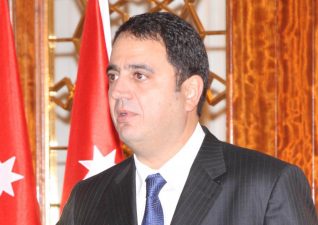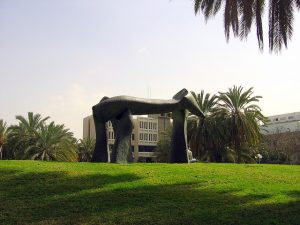
World food prices soared over 6 percent in July according to the United Nations’ Food and Agriculture Organization. Prices are continuing to rise, and food security is already a constant threat in the West Bank and Gaza.
The Applied Research Institute in Jerusalem estimates that over half the households in Gaza are food insecure, and almost 80 percent of households in Gaza are reliant on relief support. The institute estimates there are up to 550,176 food insecure persons in the West Bank, 22 percent of the population, and 829,954 in the Gaza Strip, around 52 percent. In the West Bank, those living along the border and separation barrier experience higher levels of food insecurity. These dire circumstances need innovative, domestic solutions.
The conflict with Israel isolates Palestinians in countless ways, impeding movement, trade, and access to water. It further complicates the rising risk of food insecurity. But mobile technologies provide Palestinians greater access to employment and information. Today an estimated 90.6 percent of Palestinians use mobile phones. Businessman Murad Tahboub told The Guardian that the IT industry is resilient to political turmoil.
“Checkpoints and borders don’t matter,” he said. “As long as you have access to electricity and a phone line, the basics of your business are in place.”
Foreign investors are increasingly interested in developing Palestinian technology, natural resources and solar power. The IT industry in particular has seen a 64 percent increase in foreign business since 2009. And it is still growing. Such mobile technology and networks are intrinsically tied to food security in the Middle East.
A recent report by the World Bank found that mobile and digital technologies have immensely positive impacts on a developing community’s agricultural industry. Mobile phone technology was linked to increased entrepreneurship and proactive strategizing among Moroccan farmers. Another study cited in the World Bank report found that introducing mobile phones could reduce grain price dispersion by 6.4 percent and reduce price variation by 12 percent in just one year.
Palestinian companies and institutions are investing heavily in education, hoping to arm their text-happy youth with the knowledge needed to confront challenges like environmental degradation and food security. The Palestinian Authority and Ramallah City Hall are currently working together on an environmental education initiative that hopes to reach 4,000 students in 14 schools across the city.
“Our difficult circumstances over the past 100 years mean that education is now our only asset,” said Tahboub. “It was the one thing we could carry with us.”
Image of cell phone and window via Shutterstock
Read more about Palestine:
Gaza Man Makes Electric Car in a Day
Israel and Palestine Join Hands to Build Eco-Park
Get a Green Loan from the Green Palestine Investment Company




Comments are closed.